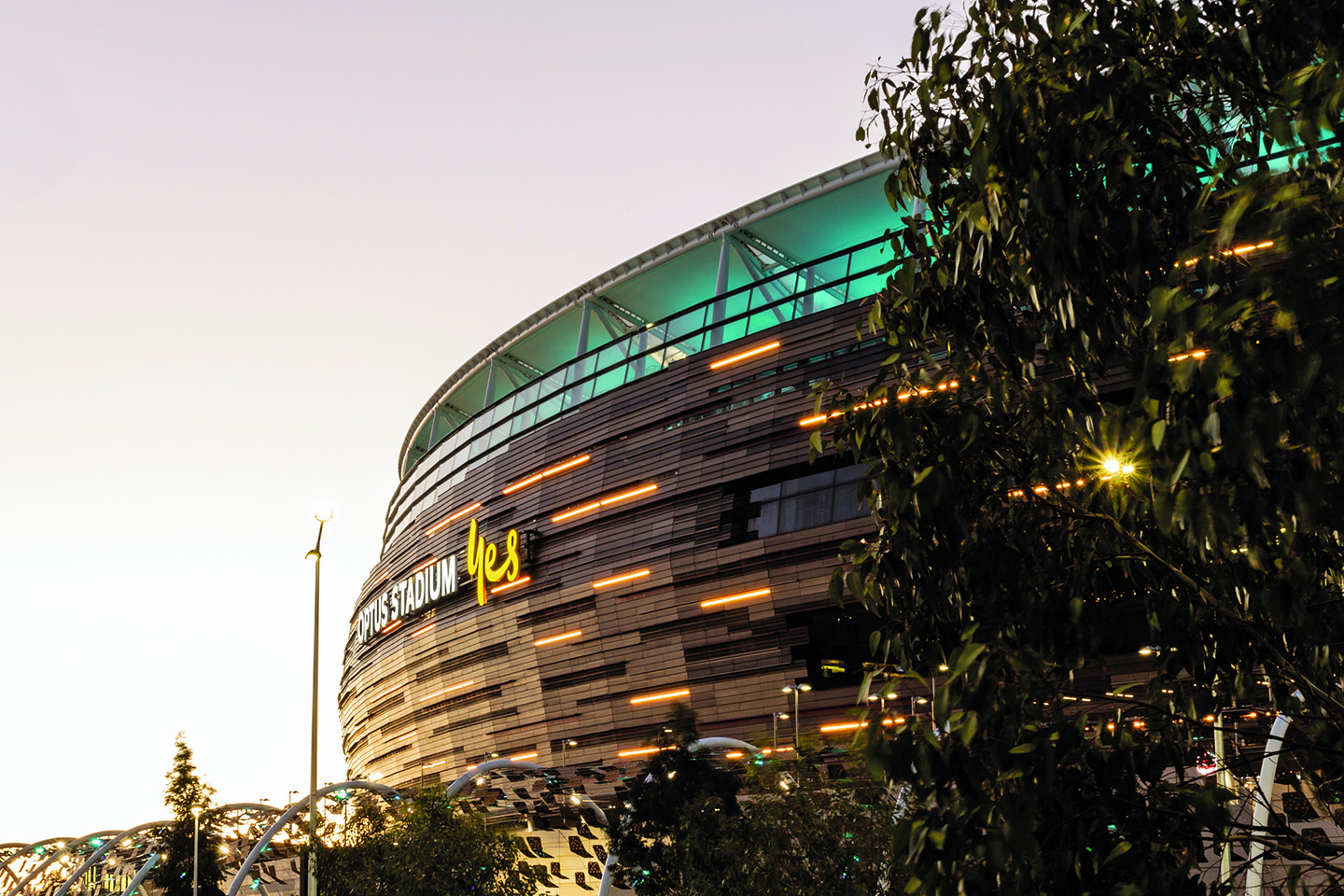Inner-suburban councils are strategising to stimulate economic activity as they navigate the long road out of the COVID-19 crisis.


Karen Vernon has faced an unrelenting series of challenges since becoming mayor of the Town of Victoria Park last October.
Several conflicts defined the early months of her tenure, including a dispute with the West Coast Eagles over their use of Mineral Resources Park and how that would affect residents in the surrounding area.
Those matters were eclipsed in March, however, when the public health response to the COVID-19 pandemic shuttered the town’s restaurants, entertainment venues, hotels and retailers.
No town, city, or shire has escaped the economic hardship of recent months, but Victoria Park – with Optus Stadium and extensive Crown operations on the Burswood Peninsula, tens of thousands of students at Curtin University in Bentley, and hundreds of businesses lining its three-kilometre cafe strip on Albany Highway – has suffered deep and severe economic fallout.
“We’ve been fortunate in many respects that many of those businesses have found a way to stay open, but we can’t kid ourselves [and say] that them staying open hasn’t come at a cost, because it has,” Ms Vernon told Business News.
“They have had to lay off staff, and often their casuals were the first to go; often they were local university students, and … they were not picked up in the JobKeeper program.
“Unfortunately, they’ve lost great staff members who belong to a vulnerable cohort, economically speaking.
“Many of those business owners are reporting anything from 20, 30 to 80 per cent reduction in their income, and many won’t get that back.
“They might be able to get back to normal trading eventually, but it’s the month-on-month reduction in income that they’re unlikely to claw back.
“That will probably mean we have some businesses that won’t survive in the long term.
“I am worried we have businesses that haven’t opened their doors, and that might be because the owners aren’t going to reopen their doors.”
By contrast, Ms Vernon said the months preceding the pandemic were a mix of excitement and careful consideration for town planning, and investigating how to attract and develop businesses in the suburbs of Carlisle, East Victoria Park and St James.
Those tasks, which would have required broad collaboration and close attention at the best of times, have become more difficult in the midst of a pandemic, as economic development takes on the added importance of acting as a backstop to a concurrent economic crisis.
“This hasn’t been what I would call a normal seven months for any mayor,” Ms Vernon said.
“I certainly didn’t have any idea that what I would be dealing with was COVID-19, and a community reeling and in shock from the most significant restrictions on economic freedom in its … history.”
Proactive
Given the successful control of COVID-19 by state and federal authorities through the first part of the year, leaders across the political spectrum have in recent weeks placed more focus on what is expected to be a prolonged economic recovery.
Even in Western Australia, which so far has avoided large-scale outbreaks and community transmission, the extent of the task has been underscored by Treasury predictions of a 3.1 per cent contraction for the state’s economy next financial year.
Many local governments across the state have implemented relief programs and capital works to alleviate the immediate challenges, but still face long-term pressure on services and other works due to restricted cash flow following reductions in, and freezes to, rates at the height of the outbreak.
And while local governments have been promised access to a $100 million small loan facility from the state government, as well as a $1.8 billion support package from the federal government, many will need to contend with widespread pressure from residents and other levels of government to freeze rate increases this year.
Given councils are unable to access JobKeeper, WA’s local governments are seeking creative alternatives to provide business and ratepayer relief.
Ms Vernon said the Town of Victoria Park had already waived or deferred an array of fees and rates until 2021, as well as started a $500,000 future fund to help weather any future crises.
That’s on top of an agreement by the council to institute a zero per cent rate increase for next year’s budget.
In the longer term, however, Ms Vernon outlined the need to accelerate capital works and boost employment opportunities for the local community, noting the strategic benefit of reopening the newly renovated Higgins Park Tennis Club and Aqualife Centre this month.
Ms Vernon argued an increase in capital works coming out of the pandemic would build a perception in the community that life was returning to a degree of normality.
“When communities go through difficult times like this, what they’re often looking for are signs that the road to recovery is well lit and there are things happening in the local community,” she said.
“One of the things we’ve done to plan our decision-making going forward is that we’ve said we’ll look to bring forward as much as we can from our five-year capital works program into a three-year capital works program.
“We’ve already said we want to put a focus on things that will drive local employment, and invariably those things are smaller works.”
Those efforts have been common throughout inner-suburban councils, which have been particularly affected by a sharp drop in foot traffic due to restrictions on movement.
That was evident in the City of Subiaco, one of the state’s first councils to take remedial action.
City of Subiaco Mayor Penny Taylor recognised the health and safety of the community had to come first, but stimulating business activity was close behind.
Ms Taylor said this involved implementing measures to cut some red tape, which was something the committee was already working on before the pandemic hit.
“Local government needs to be responsive to the real needs of the community,” Ms Taylor told Business News.
“And the more straightforward we can make it for people to do business, the better it is for everyone.”
Ms Taylor said one initiative the council had implemented was relaxing the restrictions around building use, in particular rules around alfresco dining, to help Subiaco’s hospitality strip navigate the government’s rules on personal distancing.
“As long as they had a commonsense approach to it, we were saying they could spill down a footpath,” she said.
“I know for our local businesses, just as they started to see the light was at the end of the tunnel, the pandemic really brought them to their knees.
“The city [of Subiaco] just wanted to make sure that all businesses knew that we were in this together.”
In May, the council moved to fast track more than $2.5 million worth of capital works projects to help stimulate the local economy and create more employment opportunities.
Ms Taylor said 16 projects already funded through the city’s Strategic Financial Plan would now be brought forward into the draft 2020-2021 budget, including works on Rokeby Road, as well as irrigation and lighting upgrades and a tennis court renewal at Nicholson Road Reserve.
One of the designated capital works programs included rolling out one of the council’s sustainability initiatives using recycled materials in the town’s roads.
The council’s plans to advance infrastructure projects have been supplemented by the federal government’s $500 million package for local government, $159,181 of which will go to the City of Subiaco for capital works.
“The quicker the construction industry gets back happening again, we’ll have workers in buying lunch,” Ms Taylor said.
“Hospitality was hurting before COVID and we really do need to support our small businesses.
“Looking for every opportunity … is how we’ll bounce back.”
Ms Taylor said the city had made all on-street parking free to encourage footfall, as part of its $4 million COVID-19 relief package, which also included rent relief for tenants of city-owned properties.
Additionally, the city had allocated a portion of its budget to provide grants supporting the town’s arts scene as an integral part of its COVID response strategy.
“We had an opera singer and a little folk band playing on the street corner. It supports the artists but also brings that little bit of joy,” Ms Taylor said.
“They’ve shown through different disasters, communities that really have a strong sense of the arts in part of their recovery tend to recover better as part of the mental health resilience and fostering that sense of community.
“We need to support those types of industries that make us a beautiful community – whether its performing arts, musicians, or creative arts through drawings or paintings.
“How do you cope in difficult times? You have that resilience in the cohesion of the community coming together.”














